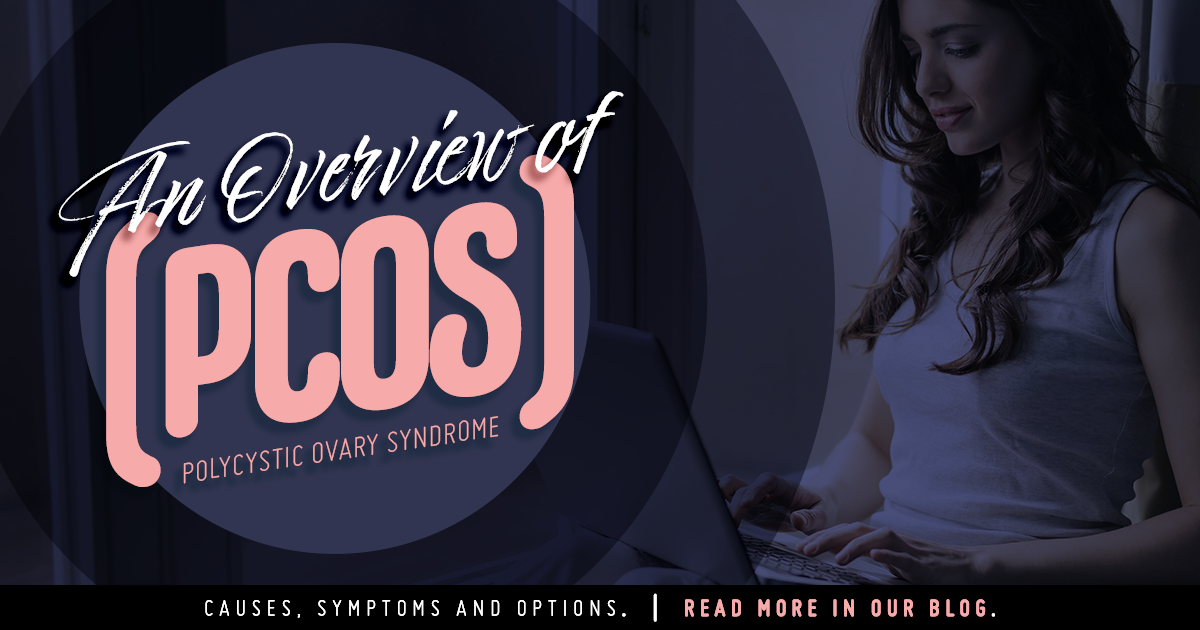With as many as 1 in 10 women living with Polycystic Ovary Syndrome (PCOS), many women still lack awareness of this relatively common condition and its symptoms.
Affecting women of child-bearing age, PCOS symptoms can include excessive hair growth on the body or face as well as infrequent menstrual cycles. If you have been diagnosed, or have symptoms common to those of PCOS, keep reading!
What is PCOS?
Although the exact cause is unknown, physicians believe PCOS, a hormonal condition, may be related to different factors including insulin resistance, an increased level of hormones called androgens, and irregular menstrual cycles.
PCOS affects younger, child-bearing females and those diagnosed are at increased risk of diabetes and cardiovascular disease.
Common Symptoms
A common symptom of PCOS is irregular periods which can range from infrequent or lack of periods to ones that happen too frequently or are unpredictable. In addition, increased levels of hormones called androgens can contribute to excessive hair growth on the face and body. This can also cause acne and other skin conditions.
Last and probably most devastating, is that PCOS can lead to infertility.
Treatment Options
Treatment options for PCOS vary depending on each woman’s symptoms, overall health as well as whether or not pregnancy is desired.
Some current options include birth control pills which can help regulate menstrual cycles and reduce acne, as well as help symptoms of hair overgrowth. Insulin-sensitizing drugs may also be an option as they can help reduce androgen levels and potentially improve ovulation.
For women who are overweight, physicians may recommend a weight loss plan as a reduction in weight (even just 10-15 pounds) can help regulate periods.
Research
Much more research still needs to be done to understand PCOS and which treatments are most effective. If you have symptoms of PCOS or have been diagnosed, talk to our medical staff about getting involved in local clinical studies. Those who participate have the opportunity to help evaluate new medications to see if they may help certain symptoms. Participants also see a board-certified Gynecologist at no cost and receive compensation for time and travel.
To learn more about PCOS or to get involved in a study, call (206) 522-3330 extension 2 or visit our website.
References: https://www.acog.org/


